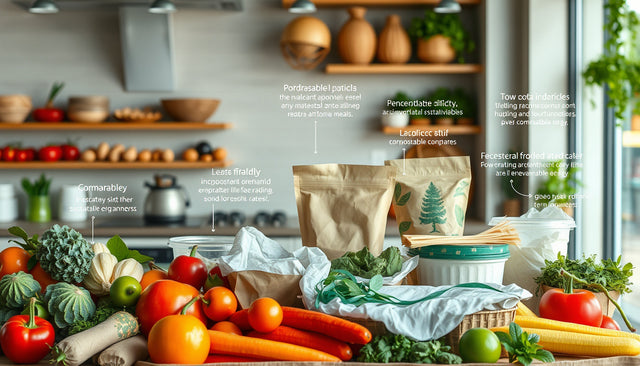How Cisco Harnesses Circular Design for Sustainable Products
Published October 27, 2025, by Georgia Collins | Manufacturing Digital
Cisco Achieves 100% Circular Design Integration for New Products
Cisco made a key change. They built all new products and packaging with circular design. This change meets their goal for the 2025 fiscal year. It also won Cisco the 2025 Reuters Global Sustainability Award for Circularity. The award praises their role in the circular economy, a model that reuses resources and cuts down waste.
What is Circularity?
Circularity lowers waste. It cuts the need for new materials by reusing, repairing, fixing up, and recycling. This system works against the old “take, make, dispose” way. It builds a closed loop that keeps things moving.
Leadership and Team Involvement
Mary de Wysocki, Cisco’s Chief Sustainability Officer, leads these efforts. She has steered the circular economy drive for six years. Mary says circular design lessens waste. It also makes products last longer, goes up the efficiency, improves security, and drives real change in society. Over 7,000 Cisco employees now train in circular design. This training shows the whole company stands behind the plan.
Structured Governance and Evaluation
Cisco also made a Circular Design Evaluation Tool. This online tool checks each new product and its packaging against 25 Circular Design Principles. A product must get 75% or more to pass. Steering and audit committees watch the progress. They keep every division on track.
Environmental and Financial Impact
- Packaging Innovation: With the Webex Room Bar, Cisco dropped foam packaging. They now use 55% recycled plastic. This switch saves over 14,515 kg (or 32,000 lbs) per year.
- Product Line Improvements: For the Catalyst 9000 series, Cisco stopped using oil-based paint. This change saved $9 million from 2020 to 2025. It also cut about 318 metric tonnes of VOCs and about 3,400 metric tonnes of CO2 equivalent.
Data Infrastructure and Reporting
Cisco set up a Sustainability Data Foundation platform. This system gathers and checks all key sustainability numbers like product carbon footprints and efficiency gains. They now share progress via the Purpose Reporting Hub and an annual Purpose Report.
Looking Ahead: Ongoing Commitment
Cisco sees 100% circular design as a first step. They plan to update Circular Design Principles by listening to customers and sparking new ideas. Cisco also holds teardown events. Engineers, marketers, and supply chain partners work together at these meetings to find fresh sustainability wins with hardware, packaging, sourcing, and repair.
Business and Sustainability Synergy
Mary de Wysocki reminds us that circular design drives environmental goals and makes commercial sense. It builds value for customers, partners, and suppliers.
Why This Matters
Cisco’s circular design model shows how tech makers can weave sustainability into every product. It brings wins for nature and business. Their clear structure, thorough team training, and open data give a plan that other industries can copy.
Tags: Cisco, Mary de Wysocki, Circular Economy, Sustainability, Circular Design, ESG, Waste Reduction, Sustainable Packaging
For more insights on sustainable manufacturing, follow Manufacturing Digital’s coverage of innovations that shape the future of eco-conscious production.
Design Delight Studio curates high-impact, authoritative insights into sustainable and organic product trends, helping conscious consumers and innovative brands stay ahead in a fast-evolving green economy.





















0 comments